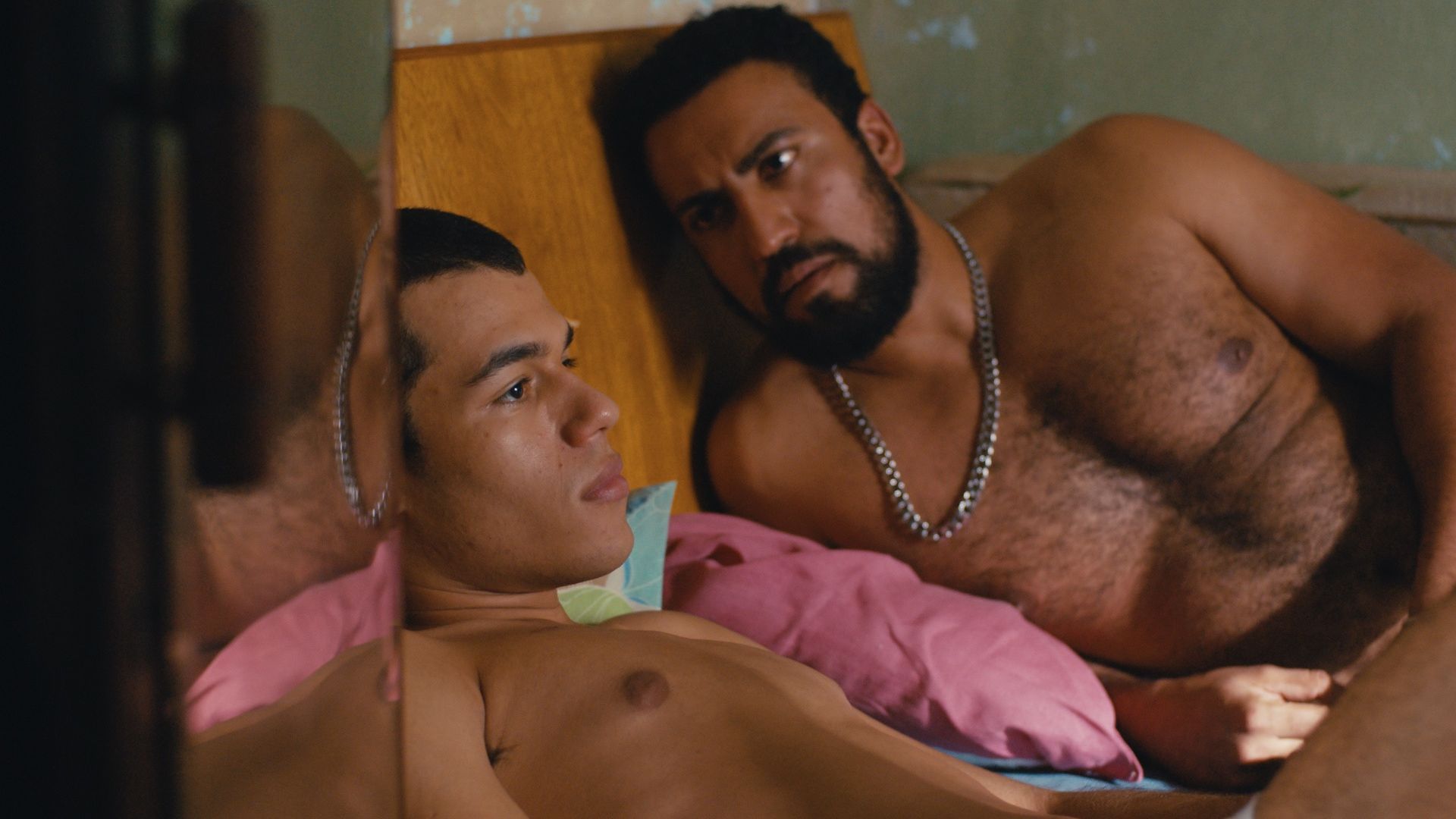Another Queer Coming of Age Movie

In her analysis of Fantasma Neon, a musical mixing elements of opera and funk to depict the reality of a delivery boy in São Paulo, Mariana Queen Nwabasili observes that this choice of style "excessively beautifies the precariousness and daily exploitation of contemporary ‘uberised’ workers in Brazil."
This comment came to my mind as I watched the opening scene of Baby, by Marcelo Caetano (Brazil, France, Netherlands, 2024, Première Brasil) in which boys in blue uniforms with shaved heads play a military march, in the FEBEM Juvenile Detention Centre. This soundtrack introduces the audience to the film. The symmetrical arrangement of bodies and instruments, combined with a clean and polished photography, is more reminiscent of European prisons than the tough reality of Brazilian institutions. The combination is reminiscent of contemporary rap music videos, known for their visual glamorisation of dissident bodies and places.
Baby can be included in the genre of Brazilian films dealing with insurgent lives in the context of urban capitalist systems, which I call the films that “eat bread baked by the devil”. When compared to films like Pixote, Baby offers a subtler balance between the tough lives and moments of relief which mould the leading character’s subjectivity. The film can still find some respite amidst the reports of violence, scenes of prostitution and coercion and drug use. One of these moments is the final scene, which reprises Baby teaching Ronaldo to dance vogue on the roof of his house.
However, these brief flights cannot divert the film from its cliché narrative. Although Ronaldo’s character is granted considerable complexity, Baby himself, who lends his name and body to the film, ends up as a poorer construction, without much autonomy, carried hither and thither by life’s forces..